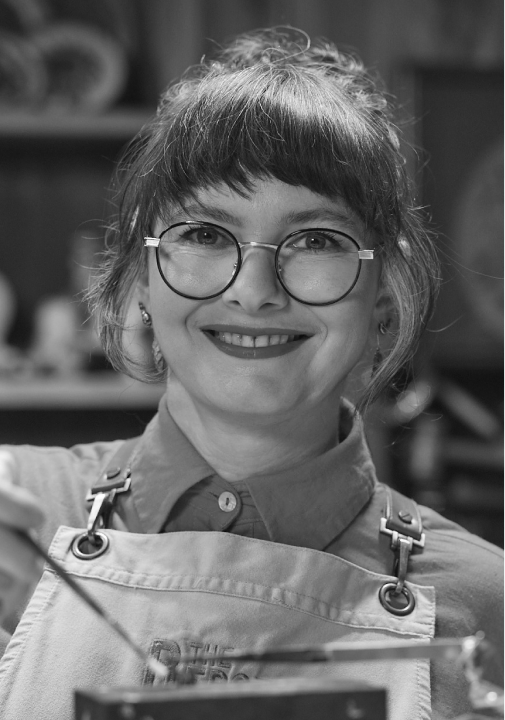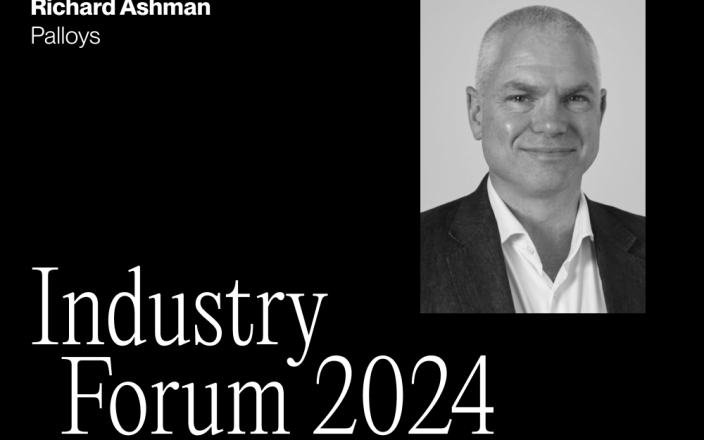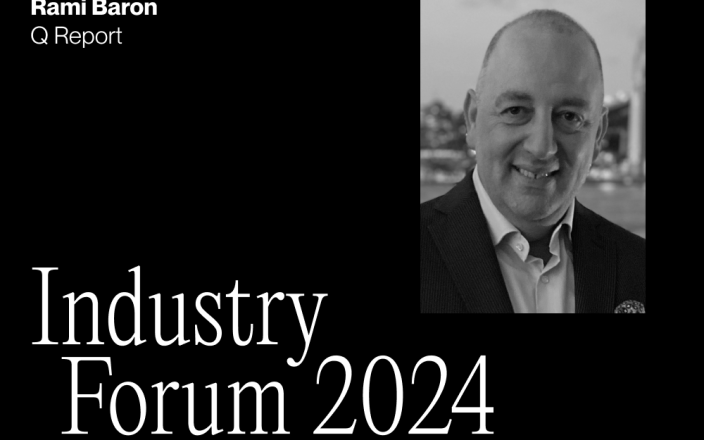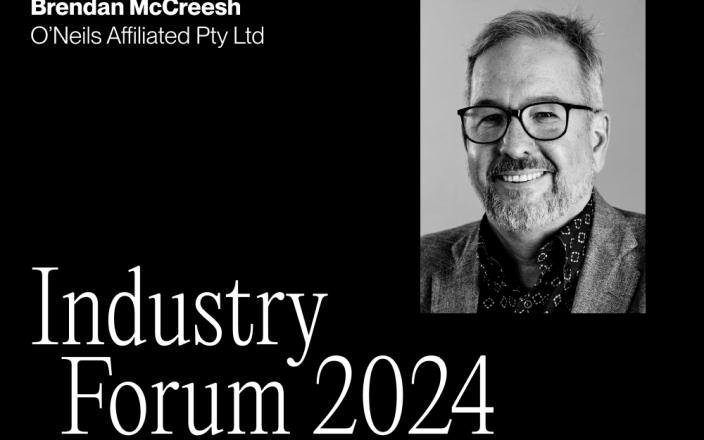
Erin Keys
Jewellery Designer and Educator at The Bench
Jewellery Restorer as seen on The Repair Shop
What risks did you take last year? Why and how did they work in your favour?
I contracted a second tutor to teach at The Bench and was able to provide continued employment for them. I cold-called a Hungarian jeweller, Anna Zeibig, who specialises in the technique of Mitsuro-Hikime and asked if she would be interested in coming to The Bench and teaching a workshop. I was quite worried about the bookings given the year we had had. However, we ended up filling three classes, and I continue to receive expressions of interest in this workshop. I began reducing the duration of our evening courses, which felt risky to do. Would I lose our regular students? I decided to [try] it after many discussions with students and talking with the tutors. The students now leave with energy, and the tutors get home at a reasonable time, not too exhausted from their jobs in the morning. We began team bonding sessions which are by far the most fast, furious and fun experience you could have in a few hours (maybe not for the tutors). We have some creases to iron out, but overall, people always leave happy.
We began the long process of having all of our course bookings run through one fully integrated system on our website. I really dislike using third-party booking systems. They are over-saturated with the same products being offered on the same day, and they take high percentages from each booking but do very little in return. Not listing with them feels risky, but with more and more people teaching jewellery and listing on these sites, I want to be as far away as possible. It’s time to stand out.
Sometimes I feel the time between [the beginning of] COVID and now is all blurred. I launched The Bench in March 2020 with $1000 in the bank. Unsure of how I would open a school without any tools, it was a friend who said “Advertise your first course, and with the money from the bookings, buy the tools you need!” While most people would not have chosen that journey, I couldn’t see an alternative. Apart from the many months of opening and closing throughout the pandemic, I heeded the advice of my friend, and that’s how we now have a fully equipped, professional jewellery workshop and school.
Hit with the economic crisis in early 2023, I came close to giving it all up. Everything seemed so hard, and so huge, and so impossible. Sometimes even frivolous. We weren’t essential—although, I would argue otherwise. But no one had extra cash, and I understood. Neither did I. I fell into a sticky Instagram web, where I would see others on social media appearing to be filling classes and making bank. Meanwhile, I felt like I was at the Macca’s drive-through asking if someone would like extra fries with their order. I gave away a lot of free benches and courses to those who couldn’t afford a class with us and reduced the prices of courses just to get enough bookings to be able to pay the tutors. I opened one night a week essentially for free, and I stopped paying myself and picked up work at a University.
2023 was so tough. I constantly felt like I was letting everyone down. When I started thinking about closing, it was really tough to keep up the momentum to take risks. I think by mid-2023, I decided that I had just pushed myself so hard to build a new and thriving school for jewellery, a brand with a vision, and an online presence. We had launched The Deadly Program Indigenous Student Pathway, participated in countless community events, and hosted interstate and international artists and exhibitions, but it was now time to pull the brakes. I was still nursing some hurt from ruffling some feathers in our community by opening the school and workshop and having little to no peer support. What was the rush? I’d spent almost three full years trying to be established, but I wasn’t taking the time to enjoy or applaud the success of simply opening the workshop, especially with so few resources. Mostly I wasn’t taking the time to engage with the hub of frenzied jewellery makers at The Bench. That was my favourite thing, engaging with course participants and helping them achieve their goals.
Workplace culture can impact an organisation’s success. How would you describe the culture at your organisation in 2023, and what steps are you taking to nurture and enhance that culture in 2024?
I partially disagree. I have worked in numerous places where the general feeling is overall disillusionment, dissatisfaction, and disconnection from management, and yet the organisation continues to succeed and generate huge financial profit year after year. And the majority of employees will continue to stay. If you want to be a jeweller in Sydney, there are not a lot of options but to look toward the big production brands to get a foot in. Securing a job on the bench where they want to train you and invest in you is difficult to find. I think there are vast opportunities for improvements within our industry’s workplace culture, looking at production optimisation, how to have employee pride in your product, and how to maintain staff loyalty to your company and foster a healthy workplace culture. I think what organisations don’t realise, because they don’t ‘look down’ is that when the disgruntled do resign, they talk. I inherently want to support other businesses and organisations, but it’s difficult when you know how unhappy staff are.
For me, at The Bench, 2023 has been our hardest year since launching in 2020. For me, my personal life went into major upheaval, and it’s been tough to balance work and life, running a business and being the face of the brand all whilst keeping to deadlines for custom engagement and wedding rings. Economically, it’s been terrifying at times, and I have taken up extra work at University, so I can keep paying my team and provide ongoing job stability. I am not sure how I have been so lucky to have the best team by my side. This year, they each stepped up and have been helping by covering my classes and being the lovely faces behind The Bench that I want the world to see. They have really carried me across the finishing line. I think being honest with them, but not putting the onus of my worries onto them and knowing they can trust me and I can trust them, is key.
Ultimately, we know it’s impossible at times to leave your worries at home, especially when coming straight from work or family. Relationships are not one-sided, and we won’t always be on the same page. My vision of our workplace culture now and moving forward is one that when you walk in, you’re instantly overcome by the feel of the space and your troubles sort of, move out of the way a little. Once you start making, you may even have stopped thinking about them altogether. I often hear people refer to The Bench as their “zen space’ or their “weekly therapy”. This is rewarding feedback because providing a genuinely safe and inclusive space where people can feel calm and find their voice and their confidence through jewellery-making was my number one objective when I launched The Bench.
We love what we do and thrive on being in the workshop, whether we are working on our own designs or teaching a class of new-generation jewellers. At present, The Bench team is entirely female, and each of us is skilled in different facets of jewellery, design, craft and production. Collectively we have well over 30 years of experience between us, and we all met when working at the same job. Each of us has our own independent jewellery practices, but we all also love educating and finding what we do meaningful.
In the workplace, I can sometimes be difficult and can become quite singular in my focus, and I have to remember that just because I am working at 11pm, that does not mean I should email or text my team. Boundaries are essential. I have quite clear demands and desires for our space. For instance, it’s vital that course participants feel comfortable, safe, and inclusive to all. Listening to one another is crucial. But, primarily, the vibe must be fun for our students—not just clinical, formulaic, out of manual learning. I regularly check in with my team—this is so critical to enhancing ownership of their roles and how they feel about working at The Bench. Allowing them autonomy to make decisions and handle a situation their way, shows I trust them to appropriately represent my brand but it gives them agency over their domain. We will leave work behind us and celebrate birthdays, Christmas and International Women’s Day. We have an annual day where we swap skills with each other—and drink a little, eat a little and make a little. We support each other’s careers and we will always share opportunities. We write new classes together, and I think this helps the courses to be well-rounded.
We know, we don’t always get it right, we are human. Sometimes, we get it so wrong when engaging with course participants, perhaps we weren’t feeling our best or we couldn’t articulate a task adequately or there was a soldering disaster and tears—but, it’s important to me that everyone knows that we hold space for polite and constructive feedback. Mostly though, we recognise our shortcomings and I am always rewriting courses, adjusting timings, and course content and talking with participants to see what worked for them, or what could work better.
Having taught similar content for the last decade, I wrote all of the courses to fit The Bench’s approach to education and learning. I don’t deliver them all—so I let the tutors decide how best to communicate—it’s important to me they add their personality and flair. We each have a slightly different technical approach to making jewellery, and I am always encouraging students to learn from another teacher or school because it’s so great to learn from different people who have different styles.
The wonderful thing in our workspace is that we are all so different and I encourage us to all teach our way. Showing our vulnerabilities is okay and that we are real too, it’s how people relate and develop further connections. I think naturally I am the neurotic one who overshares, whereas my team balances this, and I think the course participants value each of us and what we bring to a class.
Having worked within the jewellery and design industry for 23 years, I have experienced and observed so many good things and so many not-so-good things in the workplace. Every step of the way I would catalogue these moments. But, I realise that I’m a self-employed female today because I experienced on many occasions when an employer could have easily improved morale but refused to listen or think about anything other than the money. I think it’s so simple to create loyalty, engagement, a sense of worth, respect and ownership in the workplace, as well as provide job progression (through training) and pay above-award wages.
I pride myself on being open to adapting, changing and listening. It’s important to me that the visiting workshop facilitators and my regular tutors are paid deservingly. I don’t believe in paying an award wage—paying someone the minimum suggested amount and only increasing this when told, does not make people feel respected, or valued or that they ought to do anything but the minimum. That’s not how I roll!
I hope my team continues working with me into 2024, I am not quite ready to have any of them leave but the pragmatic in me plans for this. I hope I can provide more specialist training for them which will help me to provide outstanding tuition at The Bench. I have the opportunity to use our space as a platform to promote their jewellery brands and help reach a wider audience. I want to continue supporting them as best I can. We have new classes coming that we have each expressed interest in putting together—so I anticipate an afternoon in early January with some wine, paper, pen and a beautiful round table of ideas and input enthusiasm for our workplace.
Could you provide insights into how you integrate digital tools into your creative process, and what technological advancements are you looking to explore in your jewellery design in 2024?
I remember being invited to attend the first CAD-CAM workshop taught at Enmore TAFE back in 2002/3. Everyone was bewildered and bemused—the notion of designing jewellery on a computer seemed far-fetched. A rapid prototype machine that printed your design? That was unfathomable. Today it is so normal to enter the industry via CAD-CAM, having never laid a hand on metal or any other tool than your computer and CAD program. I am a self-confessed luddite who loves hand-fabricating metals. I love the smell, I love the feel and I love the ability to understand it and really get to know an alloy. I talked my way through a CAD course and I think the facilitator allowed me to pass just so I’d shut up.
Within the workshop, we are not yet set up for CAD printing or casting. We have a small space, but it has been in the works that we set up a small 3D printing and casting area. I think this could add immense value. While I rarely use this tool, I understand the value of it and as such, I certainly employ others when needed to render my designs, print and cast them. Each of The Bench team outsources this aspect, but we understand the principles enough to assist our students who wish to know more, and some of our students assist us by rendering our 3D designs.
I used to do a lot of work using Adobe Illustrator and then laser cut. [I rarely do] this now, but I am so thrilled to be able to work with the laser cutting team at Palloys. They help us to cut materials for workshops of different sizes, shapes and metals. Again, we are short on space in our workshop, so we happily guide students through this process and how to outsource.
I am thoroughly intrigued by AI jewellery design generators. I have tried a few free programs and intend to explore this further. I am genuinely excited by the possibility and future potential of programs such as Fotor, and seeing what they can do. I personally find the designing and drawing aspects of jewellery design to be the hardest—my hands are my tool for expressing what my mind sees, and using a pen to paper has always given me stress and the feeling that I can’t quite express exactly what I want something to look like, not like just making a maquette which I tend to do (obviously this is not cost-effective). I hope to spend a little bit more time exploring jewellery-specific AI generators and hopefully use them to my advantage, saving time when it comes to concept realisation.
Can you share a particularly meaningful or challenging jewellery restoration project you’ve worked on in 2023, and what projects do you anticipate in 2024?
I had such a backlog of jobs on my bench and felt like I let down all my clients in 2023. I was doing my best but my best was not 100 percent. Some of those jobs have carried through into 2024. Before I take on new clients, I want to complete these and have a reprieve from feeling behind schedule.
During the year a lot of people came to me with inherited jewellery, handed down through generations or from a deceased loved one. In one case a friend whose husband tragically died asked me to remodel their wedding ring. Despite being the world’s slowest jeweller, I really am very fortunate to be trusted to honour those who are no longer with us and to craft something that retains the memories of loved ones, yet transforms into something new for the future.
One restoration project that came my way was a request via an anti-capitalist group I am in on Facebook. Yup! Their mother had given them a diamond and sapphire ring which was their great-grandmother’s engagement ring. The great-grandparents had fled Europe, most likely Austria or Germany before WWII and migrated to the US. The ring was given to my client before they migrated to Australia. At some stage, the ring was lost, and after moving several times my client finally assumed it was gone. Years later an ex-girlfriend showed it to them and said she had stolen it during the break up. The ring shank was broken because it was worn every day so it was put into safe keeping and forgotten. Eventually, through the group on Facebook where we can trade items or services, rather than use money, I saw their story and read many comments stating it couldn’t be fixed. I said it could be done and so I fixed it in return to see them perform Drag. It was a lot more damaged once I inspected it—but the joy on my client’s face and the depth of connection I could see they had with this ring and their family was an awesome feeling. I am now in the process of designing and making their engagement ring.
As an educator, how do you envision the future of jewellery design and craftsmanship, and what educational initiatives or projects are you planning for 2024 to help shape this future in the jewellery industry?
I often wonder about the future of craftsmanship because I know the gold and silversmiths who taught me have either left this mortal coil or have retired. It saddens me that what they know, their unmatchable skills will be gone once they are gone.
Higher education and VET have changed and I don’t think you can expect to receive the same education that you may once have. While technically skilled, many of the educators have not worked in the industry lately, or ever. Course length has been reduced and there’s no time for students to develop their skills competently and those who aren’t apprentices leave without confidence to work in the industry.
I believe that many people will head to places like The Bench and The Metal Space to learn proper methods of making. Or, they may start as a bench jeweller, cleaning up castings and working their way up learning from one master jeweller. I think schools like Stephen Webb’s Standout Stonesetting and ours are the way of future learning and how young jewellers will not only hone their skills but learn proper craftsmanship.
I don’t really enter the CAD vs hand fabrication argument. It seems moot. I think there are a lot of different ways you can be a jewellery designer, and some of the most successful out there have very little hands-on experience. They are the designers, and they are essential just like the jewellers/craftspeople are essential. We all play a part. I think ultimately, in the future, I expect you will see more people who call themselves jewellery designers, launch brands and outsource production offshore. But does having an idea make you a designer?
I think it’s important to remain open to the future but it’s vital that those of us who can, share what we know and keep the traditional hand-making aspects alive and well honed. And, humans have always made things, this won’t stop. Perhaps the methods change, but I trust good craftsmanship remains.
In 2024, The Bench will be hosting more technically specialised workshops which will increase job opportunities and help support jewellers to share their skill set. We have additional mentoring programs in the pipeline and I’d love to collaborate with other schools to provide platforms for learning excellence. At The Bench, we also focus on nonprofit and community events. We offer The Deadly Program – Indigenous Student Pathway as well as offer fee-free and reduced fees to many aspiring jewellers in our LGA. I see jewellery making as a way of using tools to fix, build, and otherwise control your own world which can foster a mindset of unwavering strength and agency. It’s important to me that those who want to learn can learn.
What are you most looking forward to in 2024?
In 2024, I’m really hoping that as a jewellery workshop and school, we can forge ahead and continue to set ourselves apart. Everywhere you look now there’s another brand teaching entry-level jewellery making. I encourage and support this, often guiding customers their way. I love that people have [the] confidence to create successful businesses with only a set of foundation skills and minimal tools. It changes the game! But, it also makes it challenging to stand out online. Our workshop is already a point of difference when it comes to spaces in Sydney. You can feel the intention and vision and feel the community’s belief in us when you look around and see a fully equipped workshop. But this is difficult to present online, so we are going to continue to present classes that you can’t find anywhere else. Also, I have been invited to Fiji and I think I really need to go and rest for a week!


